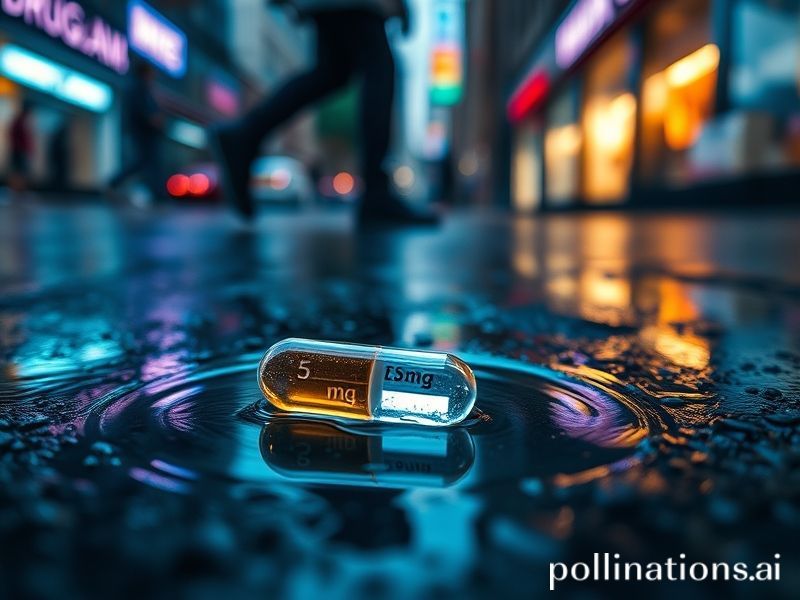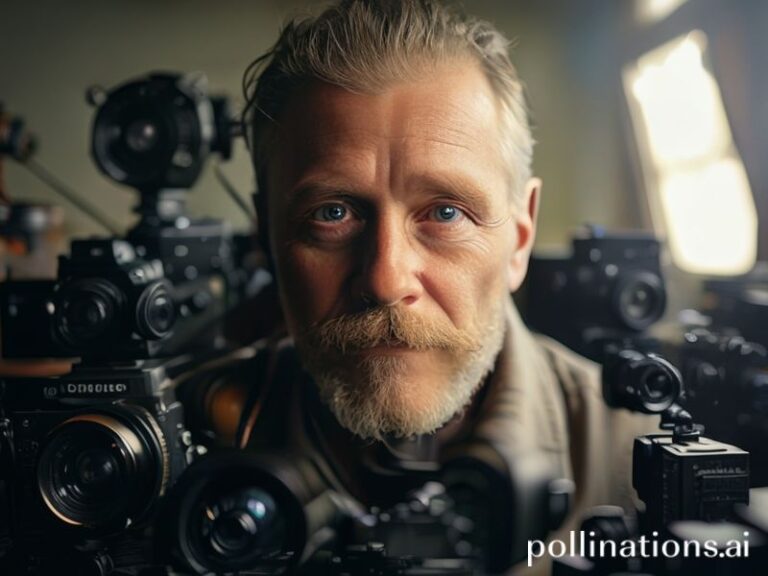Global Waistlines, Global Profits: How One Danish Injection Became the Planet’s Most Coveted Commodity
A Needle in the Global Haystack: How One Weekly Jab Became the Planet’s Hottest Status Symbol
GENEVA—The newest weapon in humanity’s eternal war against its own waistline isn’t a dusty treadmill or a kale smoothie, but a humble pen-shaped syringe filled with something called semaglutide. Marketed as Wegovy in the United States, Ozempic everywhere else, and “that thing my cousin in Dubai is injecting before brunch” in WhatsApp voice notes, the drug has achieved the rare feat of uniting hedge-fund managers in Manhattan, Bollywood starlets, and Lagos tech bros in one glorious, slightly nauseated queue.
From Davos to Dakar, the promise is identical: drop up to 15 % of body weight without surrendering the corporate canapés. Side effects may include “sulfur burps,” facial aging (charmingly rebranded as “Ozempic face”), and a sudden urge to discuss GLP-1 receptors at dinner. But compared with the alternative—actually eating less—these are trifles. After all, who has time for self-control when the global economy runs on 14-hour Zoom marathons and Uber Eats?
The geopolitics are delicious. Denmark—yes, the same country that once gave the world existential despair and open-faced sandwiches—now wields soft power through Novo Nordisk, the drug’s manufacturer. Its market cap recently surpassed Denmark’s entire GDP, prompting Copenhagen to consider renaming the Little Mermaid “Little Margin of Profit.” Meanwhile, Beijing has green-lit domestic copycats with names that translate roughly as “Slender Tomorrow,” ensuring that Belt and Road now comes with a calorie deficit.
In Brazil, private clinics in São Paulo report three-month waiting lists; in Egypt, the drug arrives via “creative” importers who store vials next to knock-off Viagra in Cairo’s sprawling souks. Even in sanctions-hit Tehran, Instagram influencers flaunt their shrinking silhouettes while carefully cropping out the Turkish pharmacy labels. Globalization, it seems, is most efficient when smuggling vanity itself.
The World Health Organization, ever the bearer of good news, warns that unchecked demand could widen health inequality faster than you can say “postcode lottery.” Rich nations have already begun rationing; the United Kingdom’s National Health Service restricts prescriptions to the morbidly obese, while private Harley Street clinics sell doses to the merely affluent at prices that would make a Bond villain blush. In Kenya, a single pen costs more than the average monthly salary, creating a black market where counterfeit versions—rumored to be filled with saline and wishful thinking—do brisk trade.
Then there’s the climate angle nobody asked for. Analysts at Goldman Sachs calculate that if 60 million Americans alone adopt the drug, reduced food demand could cut agricultural emissions by 1 %. A green revolution powered by projectile vomiting: Greta Thunberg, please update your slide deck.
Yet beneath the cynicism lies a raw human truth. We live in an era where bodies are expected to look Photoshopped despite sitting 12 hours a day under fluorescent lights. The drug is merely the latest technological fix for a biological mismatch our ancestors could never have imagined: genes built for famine meet fridges full of cheesecake. If the cave painters of Lascaux had known this future, they’d have drawn stick figures clutching EpiPens instead of spears.
As patents tick toward expiration and every pharma giant from Tokyo to Tel Aviv races to brew its own miracle molecule, the next frontier is clear: a once-yearly implant that melts fat while you sleep, dream, and doom-scroll. Until then, the planet’s most privileged will keep pricking, burping, and pretending the hunger pangs are “just mindfulness.”
In the end, the drug doesn’t just shrink waistlines; it exposes the absurdity of a world that can engineer peptides to curb appetite yet cannot engineer a politics to curb greed. Somewhere, a Danish executive is lighting a cigar with a krone note, toasting humanity’s oldest paradox: we’ll move heaven and earth to be thin, but not an inch to be kind. Cheers to progress, and pass the antacids.







